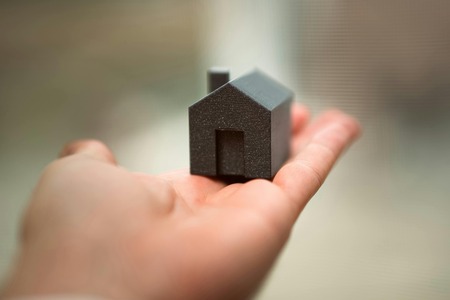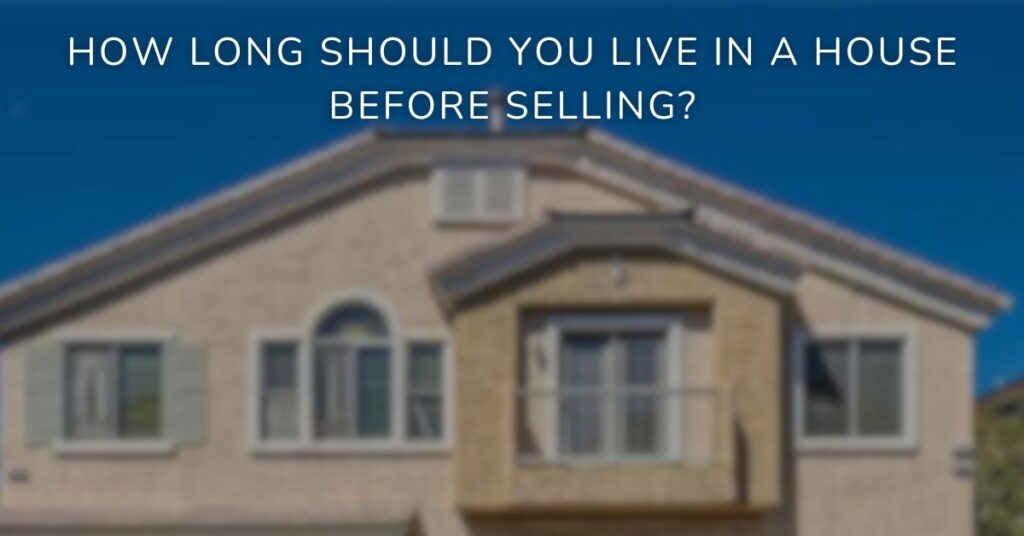Selling your home is a major decision with a series of questions to answer and choices to make, particularly if you live in a city with a fluid housing market. Whether you wish to downsize, upgrade, or relocate, it pays off to learn about local market dynamics to navigate the sale of your property successfully. In our blog, we will continue with the home-selling process such as the factors that can affect how your home sale plays out, share some secrets on how to maximize the value of your property, and provide some tried-and-true tips on how to speed up the sale for the best price. We hope you will find the information provided here key to helping you make the smartest decisions some of us are able to make from time to time, and that our post will turn into a comprehensive guide that provides you with all the necessary knowledge you seek to guide your Las Vegas home sale.
1. Understanding Home Ownership Duration

The Financial Implications of Selling Too Soon
There are few quick returns in selling a home within a few years of purchase. The sizable transaction costs, from real estate agent commissions to closing costs to that pesky capital gains tax, will normally neutralize, if not outweigh, this meager performance. According to various studies, many homeowners fail to recover these costs, particularly if the house is sold within the first several years of ownership.
Some statistics claim that Americans move on average 12 times in their lives, which indicates that people find themselves in circumstances that compel them to move; because they sell so early in their possession of the home, they may find themselves with very little equity or even worse: selling their tight margin to owe for an amount insignificantly above the cost of selling the house. The financial authority entails having your fears and worries, if any, considered before rushing into a decision.
2. Common Reasons for Selling

There are various motivations behind why people choose to sell their homes. Understanding these common reasons can provide context for your decision-making process:
Financial Changes: Lost jobs, unforeseen expenses, or changed incomes can warrant a home sale.
Family Needs: Families can be expanding, with the need for space, or empty-nesting can necessitate downsizing.
Market Conditions: A seller’s market may open lucrative opportunities for profit.
Relocation: For whatever reason, job transfers or opportunities may bring a need to move somewhere else quickly.
Community Changes: Changing neighborhoods can force homeowners into a search elsewhere; the overcrowding that sometimes comes about or the increased crime can make them uneasy and want to move out.
Personal Circumstances: Changes in one’s needs for housing are typically brought about by major life events: marriage, divorce, illness, downsizing, and the like.
3. The Five-Year Rule

What is the Five-Year Rule?
The Five-Year Rule is a commonly referenced guideline in real estate that suggests homeowners should aim to live in their homes for at least five years before selling. This timeframe is significant for several reasons:
Cost Recovery: If sold prematurely, the owner may not be able to recover initial costs like closing costs, realty commissions, and moving expenses. The Five-Year Rule gives homeowners a chance to recover these costs as well as allow for some home appreciation, if any.
Equity Building: Staying for five years in a home allows homeowners to build equity. They will reduce the principal amount of the mortgage with constant payments, and if property values are generally increasing over the years, they should profit more when they sell the home.
Equity and Its Importance
Home equity refers to the difference between the market value of your home and the mortgage balance currently outstanding. It represents the share of the property that an owner retains. Home equity is an important decision factor while selling the home; the more the equity someone has, the greater potential profit that person can make from it.
Two main drivers help build equity in the house.
The writer means that an average household equity can increase over time, using two key means, like:
Making Regular Payments on Principal: As one makes regular payments on the house mortgage, one gets some equity increase through the reduction of the loan balance.
Appreciation: An increase in home market value pushes up equity levels among owners.
Example:
Purchasing at the Beginning: Ordered on a purchase price of $300,000 with 20% down, or $60,000 equals the beginning value of equity.
After Five Years: The property’s value climbed to $360,000, the mortgage is now $240,000, and therefore your equity has climbed up to $120,000 ($360,000 \230 $240,000).
4. Market Conditions and Timing

Is it a Buyer’s or Seller’s Market?
For any homeowner considering selling their property, an understanding of whether the current market is a buyer’s market or a seller’s market is essential.
Buyer’s Market: This is when the supply of homes to be sold is greater than the supply of buyers willing to purchase, which leads to lower housing prices. In these scenarios, sellers may sometimes have to reduce their listings or otherwise sweeten the deal for potential buyers to entice them.
Seller’s Market: This is defined by a limited number of available homes against the volume of interested buyers. Essentially, a seller’s market indicates that home prices are rising, bidding wars are taking place, and sales take place very quickly.
Signs It’s a Good Time to Sell
There are certain factors I need to keep in mind which can add significance to the selling process of a house. If you recognise those signs, this time can be sanctionable for selling:
Home Values Steadily Rising: If the average sale prices in your neighborhood are on the rise, it indicates high demand for homes and provides an excellent opportunity to sell.
Low Inventory: A decrease in the number of homes available for sale generally warrants high competition among buyers, giving an edge to sellers.
Increased Buyer Activity: If the showings, open house attendances, or inquiries have been multiplied, it suggests buyers are actively looking, hence welcoming the house to list.
Quick Sales: If houses in one’s neighborhood sell relatively quickly in the range of days or weeks, it speaks to a seeming high demand, which would favor the sellers.
Positive Economy: Local job growth, wages going up, and lower interest rates will provide an active housing market, making a good time to sell.
Conclusion
The points worth considering before you decide to part with your home are quite complex. These include issues like personal circumstances associated with it, financial ramifications, and conditions of the housing market. Knowledge about how long to stay put in a home, rule of five years, and how equity builds over time might assist you in making a more informed decision.
As we’ve addressed earlier, selling too soon could make you incur potential losses. This implies that in the matter of weighing your options, due diligence is imperative. Financial changes or family needs-liberal/increase in market trends require the right time to make selling the correct choice for maximizing your returns on investment.



